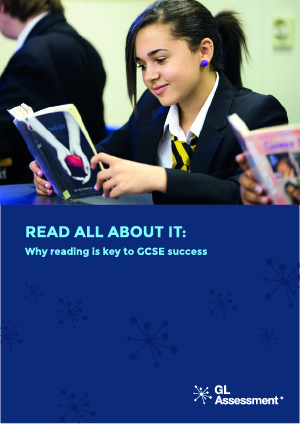Why reading is key to GCSE success
Did you know that 25% of 15 year-olds in the UK have a reading age of just 12? Or that students who are weak readers are as likely to struggle in maths and science at GCSE, as they are in English?
This website explores one of the largest studies of students reading, as well as providing you with ideas, case studies and commentary from schools, localities and Trusts involved in closing the reading gap. Particular focus is given to the Blackpool Key Stage 3 Literacy project, a targeted initiative that aims to raise the reading abilities of children in one of the most challenging areas of the country.
Explore report
Reading: the master skill
By Alex Quigley, critical friend to the Blackpool Literacy Project
Why is reading key to GCSE success?
Our analysis of New Group Reading Test and GCSE data
Improving literacy across a locality
Stephen Tierney on the Key Stage 3 Literacy Project in Blackpool
A whole-school approach to reading
South Shore Academy in Blackpool highlights the impact of Literacy Project
The vocabulary gap
One school’s approach to tackling oracy as well as literacy
Reading: a gateway to the wider curriculum
Supporting children with SEN
by Dr Adam Boddison
Top tips for improving literacy throughout a school
- Ensure you know the nature of the problem. Do you know how your students compare nationally, which need support and what that support should look like?
- Make sure staff are on board with any changes. They need to know why literacy is so crucial and what it means for the teaching of their subject.
- Emphasise that literacy is a whole-school endeavour. It is not the sole responsibility of any one department.
- Sweat the data. Use it not only to measure progress but also to identify and diagnose potential problems.
- Less is more. Make one or two big changes and stick to them.
- Read first thing. Get children into the habit of reading as soon as they start school in the morning.
- Invest in quality textbooks. Teach children how to get the most out of them and don’t rely on handouts.
- Encourage subject literacy. Introduce reading materials into each subject that acquaint children with specific subject vocabulary and concepts.
- Invest in staff CPD. Colleagues have to know what the data is telling them and where students need to be supported or stretched.
- Walk don’t run. To be sustainable, progress has to be properly embedded, so don’t introduce students to material they can’t fully access.





